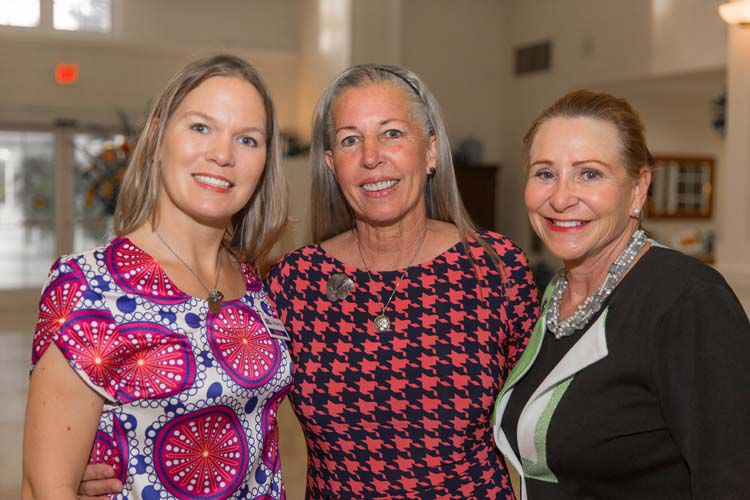At the United Way of Indian River County Community Leaders Breakfast last Wednesday, (see pg. 30) UWIRC CEO Michael Kint introduced Brett Hall, the new executive director of the Mental Health Collaborative of Indian River County. Originally from Chicago, Hall has served in mental health and healthcare leadership for more than 20 years; the last six running the Behavioral Health Center at Indian River Medical Center.
“In my work here in Indian River County over the past 12 years with the Mental Health Collaborative, I’ve come to know and admire a great many people who are dedicated to improving the mental health system here,” said Kint. “Brett Hall is one of those folks. Brett has impressed me with his depth of knowledge and his willingness to collaborate. It’s a difficult arena. Due in large part to those qualities, I am delighted that he’s decided to take on a real challenge in our community.”
The MHC was founded 12 years ago as an affiliation of funders and providers working together to increase access to mental health services. The program was incubated through the United Way with Lisa Khale as its part-time administrator before incorporating as its own 501(c) 3 this September.
After consulting with community leaders, providers and funders, the MHC developed a strategic plan resulting in four initiatives: a Mental Health Court, which launched in 2015; reducing mental health stigma; incorporating behavioral health into primary care; and designing and operating a Community Connection Center.
Citing statistics that in 2014 one in four people had a diagnosable mental illness, one in three had a substance use disorder and one in two had a chronic medical illness, Hall said, “This affects all of us; our friends, our families and our co-workers.”
Hall referenced the late Dr. George Engel, who believed that the secret to optimal health was the balance of the biological, psychological and social systems.
“We have some of the best biopsychosocial services available right here in Indian River County. Sometimes we just need help connecting the dots to live a life in balance. And that’s where we come in,” said Hall. “The Connection Center will be the community hub for all things impacting mental health and sobriety. This is a place where anybody in the community can come.”
Individuals will receive both financial and clinical screenings to determine the level and types of services needed, and care coordinators will secure appointments and follow up to ensure there are no issues preventing them from keeping those appointments.
Although the collaborative is focused on mental health and sobriety, Hall said that as a centralized hub of programs and services, they will be able to assist in other areas impacting those individuals, such as primary and dental care, transportation, housing, vocational training and food needs.
“We will do whatever we can. We can’t solve every problem but we will do whatever we can to make sure that we are addressing all of the social determinants that are impacting their mental health and sobriety,” said Hall. “So that’s what makes us different; we’re treating the whole person in every conceivable aspect of their life – when we can.”
He stressed that the Connection Center is not a service provider, adding, “We’re working together with the providers to support each other; we’re certainly not working in competition. The collaborative membership is all the providers, funders and systems in town. The Connection Center will have agreements with the providers and then they will provide an appointment or two a week to the connection center so that we can get our patients in that need services rather quickly.”
Hall also hopes to collect data regarding any unmet needs, explaining, “I don’t think we always have clear data on what our community needs. We will be the living, breathing, needs-assessment for the community, so that at any time a funder can come in and say, ‘What is the biggest need in town?’ And I can tell them we had so many people looking for X, Y and Z that we couldn’t fill.”
An established MHC board, comprised of providers, funders and advocates, will have oversight of the Connection Center and will help determine how it is run.
“It is a true collaboration back and forth,” said Hall, noting that in addition to membership dues, funding sources have included the IRC Hospital District, IRC United Way, the Robert F. and Eleonora W. McCabe Foundation and others.
The Connection Center is scheduled to open sometime in November at 2345 14th Avenue, across from the Historic Vero Beach Train Station.

